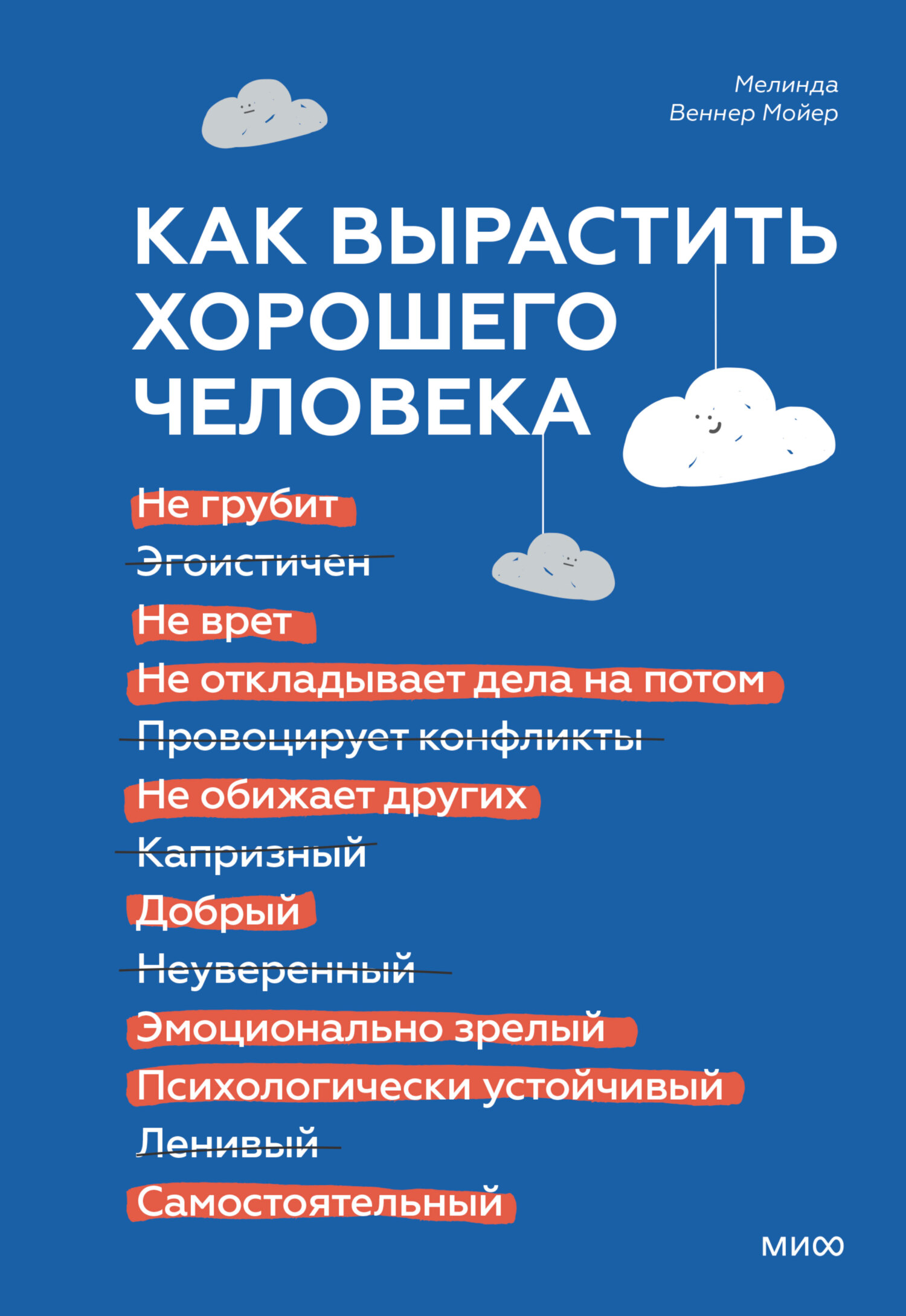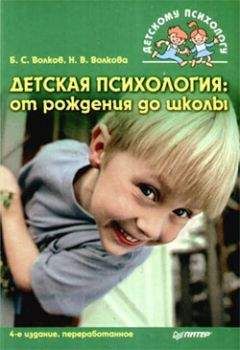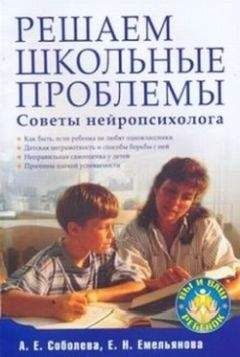Как вырастить хорошего человека. Научно обоснованные стратегии для осознанных родителей - Мелинда Веннер Мойер

Помощь проекту
Как вырастить хорошего человека. Научно обоснованные стратегии для осознанных родителей читать книгу онлайн
250
Judy Dunn and Carol Kendrick, Siblings: Love, Envy and Understanding (London: Grant McIntyre, 1982).
251
Eileen Kennedy-Moore, Kid Confidence: Help Your Child Make Friends, Build Resilience, and Develop Real Self-Esteem (Oakland: New Harbinger, 2019).
252
Laura Markham, Peaceful Parent, Happy Siblings: How to Stop the Fighting and Raise Friends for Life (New York: Perigee Books, 2015).
253
Amanda Kowal and Laurie Kramer, “Children’s Understanding of Parental Differential Treatment,” Child Development 68, № 1 (February 1997): 113–126.
254
Adele Faber and Elaine Mazlish, Siblings Without Rivalry: How to Help Your Children Live Together So You Can Live Too (New York: Norton, 2012).
255
Шумейкер Х. Не делиться – это нормально. И другие неправильные правила воспитания разумных и отзывчивых детей. М.: КоЛибри, 2016. Прим. ред.
256
Julie Smith and Hildy Ross, “Training Parents to Mediate Sibling Disputes Affects Children’s Negotiation and Conflict Understanding,” Child Development 78, № 3 (May/June 2007): 790–805.
257
Julie Smith and Hildy Ross, “Training Parents to Mediate Sibling Disputes Affects Children’s Negotiation and Conflict Understanding,” Child Development 78, № 3 (May/June 2007): 790–805.
258
Hildy S. Ross and Marysia J. Lazinski, “Parent Mediation Empowers Sibling Conflict Resolution,” Early Education and Development 25, № 2 (2014): 259–275.
259
AAP Council on Communications and Media, “Media and Young Minds,” Pediatrics 138, № 5 (November 1, 2016): e20162591.
260
Victoria Rideout, “The Common Sense Census: Media Use by Kids Age Zero to Eight,” Common Sense Media, 2017. https://www.commonsensemedia.org/sites/default/files/uploads/research/csm_zerotoeight_fullreport_release_2.pdf.
261
Monica Anderson and Jingjing Jiang, “Teens, Social Media & Technology 2018,” Pew Research Center, May 31, 2018. https://www.pewresearch.org/internet/2018/05/31/teens-social-media-technology-2018/.
262
Amy Orben and Andrew K. Przybylski, “The Association Between Adolescent Well-Being and Digital Technology Use,” Nature Human Behaviour 3, № 2 (February 2019): 173–182.
263
Andrew K. Przybylski and Netta Weinstein, “A Large-Scale Test of the Goldilocks Hypothesis: Quantifying the Relations Between Digital-Screen Use and the Mental Well-Being of Adolescents,” Psychological Science 28, № 2 (February 1, 2017): 204–215.
264
Michael Scharkow, “The Accuracy of Self-Reported Internet Use – A Validation Study Using Client Log Data,” Communication Methods and Measures 10, № 1 (2016): 13–27.
265
Jenny S. Radesky, Heidi M. Weeks, Rosa Ball, Alexandria Schaller, Samantha Yeo, Joke Durnez, Matthew Tamayo-Rios, et al., “Young Children’s Use of Smartphones and Tablets,” Pediatrics 146, № 1 (July 2020): e20193518.
266
Jean M. Twenge, “Have Smartphones Destroyed a Generation?” The Atlantic, September 2017. https://www.theatlantic.com/magazine/archive/2017/09/has-the-smartphone-destroyed-a-generation/534198/.
267
Taylor Heffer, Marie Good, Owen Daly, Elliott MacDonell, and Teena Willoughby, “The Longitudinal Association Between Social-Media Use and Depressive Symptoms Among Adolescents and Young Adults: An Empirical Reply to Twenge et al. (2018),” Clinical Psychological Science 7, № 3 (May 1, 2019): 462–470.
268
Amy Orben and Andrew K. Przybylski, “The Association Between Adolescent Well-Being and Digital Technology Use,” Nature Human Behaviour 3, № 2 (February 2019): 173–182.
269
Anna T. Prescott, James D. Sargent, and Jay G. Hull, “Metaanalysis of the Relationship Between Violent Video Game Play and Physical Aggression over Time,” Proceedings of the National Academy of Sciences 115, № 40 (October 2, 2018): 9882–9888.
270
Plato, Phaedrus, trans. Benjamin Jowett (London: Oxford University Press, 1892). http://classics.mit.edu/Plato/phaedrus.html.
271
Henry David Thoreau, Walden; or, Life in the Woods (Boston: Ticknor and Fields, 1854).
272
Ana Vogorinčić, “The Novel-Reading Panic in 18th-Century in England: An Outline of an Early Moral Media Panic,” Media Research: Croatian Journal for Journalism and the Media 14, № 2 (2008): 103–124.
273
Amanda Lenhart, “Chapter 4: Social Media and Friendships,” in “Teens, Technology and Friendships,” Pew Research Center, August 6, 2015. https://www.pewresearch.org/internet/2015/08/06/chapter-4-social-media-and-friendships/.
274
Victoria Rideout and Michael B. Robb, “Social Media, Social Life: Teens Reveal Their Experiences,” Common Sense Media, 2018. https://www.commonsensemedia.org/sites/default/files/uploads/research/2018_cs_socialmediasociallife_executivesummary-final-release_3_lowres.pdf.
275
Devorah Heitner, Screenwise: Helping Kids Thrive (and Survive) in Their Digital World (New York: Bibliomotion, 2016).
276
Diana Graber, Raising Humans in a Digital World: Helping Kids Build a Healthy Relationship with Technology (Nashville: HarperCollins Leadership, 2019).
277
Julianna Miner, Raising a Screen-Smart Kid: Embrace the Good and Avoid the Bad in the Digital Age (New York: TarcherPerigee, 2019).
278
Anya Kamenetz, The Art of Screen Time: How Your Family Can Balance Digital Media and Real Life (New York: PublicAffairs, 2018).
279
Alexandra Samuel, “Parents: Reject Technology Shame,” The Atlantic, November 4, 2015. https://www.theatlantic.com/technology/archive/2015/11/why-parents-shouldnt-feel-technology-shame/414163/.
280
Eric E. Rasmussen, Autumn Shafer, Malinda J. Colwell, Shawna White, Narissra Punyanunt-Carter, Rebecca L. Densley, and Holly Wright, “Relation Between Active Mediation, Exposure to Daniel Tiger’s Neighborhood, and US Preschoolers’ Social and Emotional Development,” Journal of Children and Media 10, № 4 (2016): 443–461.
281
Sapna Maheshwari, “On YouTube Kids, Startling Videos Slip Past Filters,” New York Times, November 4, 2017. https://www.nytimes.com/2017/11/04/business/media/youtube-kids-paw-patrol.html.
282
Atika Khurana, Amy Bleakley, Amy B. Jordan, and Daniel Romer, “The Protective Effects of Parental Monitoring and Internet Restriction on Adolescents’ Risk of Online Harassment,” Journal of Youth and Adolescence 44, № 5 (May 2015): 1039–1047.

























